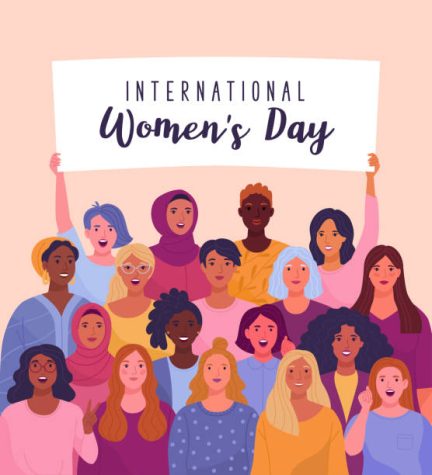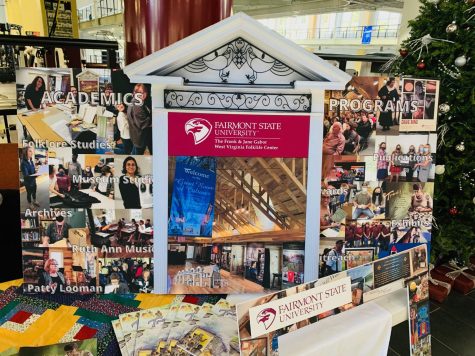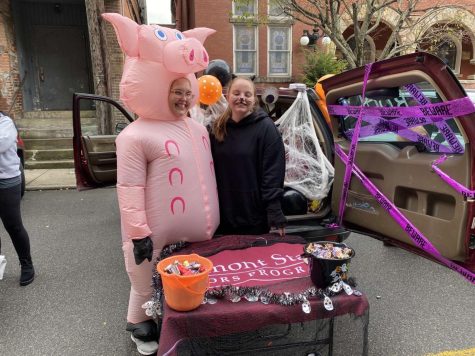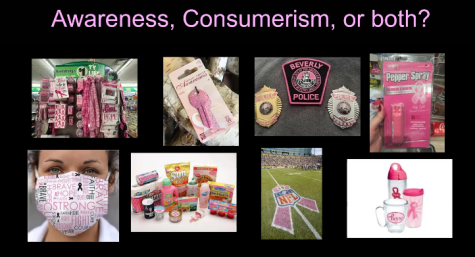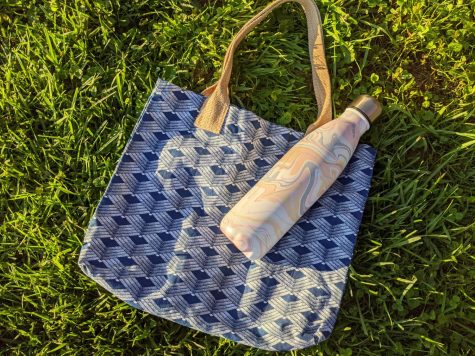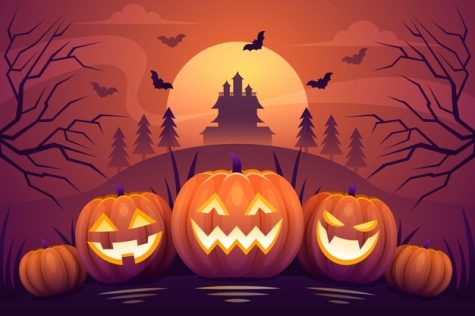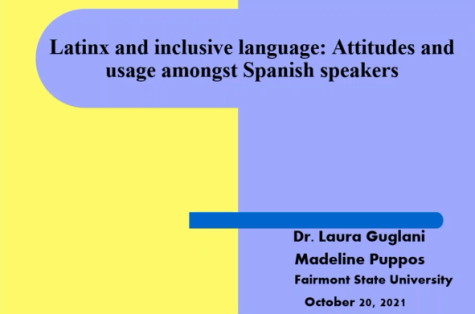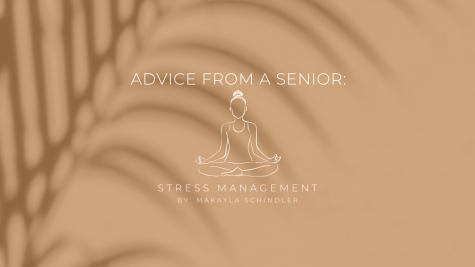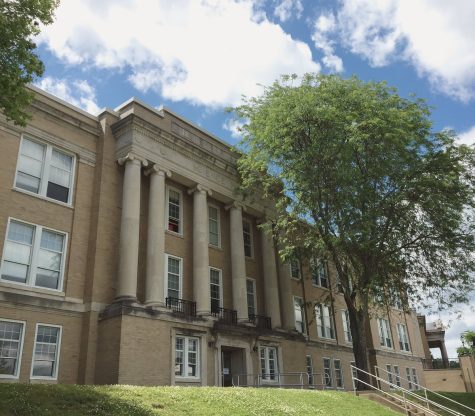Interview with Alyssa Schwartz
Dr. Alyssa Schwartz is the Visiting Assistant Professor of Flute and Musicology at Fairmont State University. Some of her accomplishments include debuting at New York City’s Carnegie Hall in November 2017 and returning for a second performance the same month as a result of winning 1st prize in the 2017 Golden Classical Music International Competition and 2nd Prize in the 2017 Concert Artists International Music Competition, She has also won the 2019 Florida Flute Association Orchestral Excerpts Masterclass Competition, and has been featured as a soloist in 2017 with the West Virginia University Wind Symphony and on several occasions with the Chautauqua Regional Youth Symphony. Alyssa has partnered with Polyphony Artist Management to produce two new albums of flute music featuring compositions by Dr. Daniel Baldwin. The first album will include the premiere recording of Dr. Baldwin’s new Flute Sonata and other works by other composers for solo flute that emphasize the beauty of the instrument. The second album will include the premiere recording of Dr. Baldwin’s new Flute Concerto. The DVD will include the live recording of the world premiere of the Concerto, along with interviews with Dr. Schwartz and Dr. Baldwin.
What do you do at Fairmont state as the Professor of Flute and Musicology?
“My primary duties here are teaching music major classes. I teach the flute students here, and I also teach flute lessons for anybody who might want to study the instrument or learn it as an elective. That is a big portion of my classes. Musicology is basically the history of music. This means I teach the music majors here how music has developed in our culture and why we hear things the way we do, which is super interesting. I teach some music appreciation classes too, and in them, it has become a life goal is to get non-musicians to be excited about music.”
What made you realize you wanted to pursue a career in music and the arts?
“It’s such a silly story, but in middle school band, they would just give us random instruments to see if we could play them. I got the clarinet and thought it was fine, I didn’t love or hate it. Well, I had one of those best friends who I was also very competitive with and she picked the flute. One day we swapped instruments and she could not play my clarinet, but I got a really good sound out of her flute. I realized then that the flute was my instrument. I discovered that unlike some of the other instruments it suited me and it came to me quickly. I stuck with the flute long enough to realize that I found music itself really valuable in that it is so communicative and expressive.”
What moments in your career have you been particularly proud of?
“I have a couple of selfish ones that just make me feel good about myself, one being that I got to perform at Carnegie Hall twice. I had some successes with competitions five to seven years ago when I was the right age to do that, one of which allowed me to perform there. I got super hyped when I saw that if I won a competition I could perform at Carnegie Hall. I remember hearing about Carnegie Hall when I was about twelve and just thinking it was the most amazing, far-off, weird, wild thing. Getting to do that was my whole life goal. After my first performance there I thought “Okay, now what?”,
Some less selfish career moments that have been really valuable are my students having success in music. Most of them are still pretty young, but, for example, I had one student get into a pretty prestigious middle school program at The Valley Forge Academy. I had another student who got into a gifted high school program that was focused on the arts. A couple of my students may end up having really good careers in music, which has been amazing to see.”
Do you prefer any particular type of music to perform over others?
“I pretty much love playing everything at this point. I guess if I had to pick a favorite it would be Romantic era music, which is the era that most people not familiar with classic music would know pieces from. It is the most popular of classical music, like Beethoven’s kind of stuff. It is my favorite because, generally speaking, it is the most emotional and expressive music to come from classical music.”
Do you play any instruments other than the flute?
“I do, but I am a little bit sucky at them. I can play piano moderately well, well enough to accompany students sometimes. I do actually also play saxophone, clarinet, bassoon, and cello, but I am not super good at those. I make a little bit of noise with those instruments.”
So your main method of teaching is by using the flute?
“Yeah, at least in my flute lessons. The other classes are straight-up lecture style, but as for the applied stuff, my best area is the flute. I am a little iffy in all the other categories.”
Do you prefer one-on-one lessons or the big lecture-type classes more to teach?
“I really, really love teaching the flute because I just enjoy playing it so much. So I do have a deep, personal satisfaction in getting to do that. A cool thing is that when working one-on-one with students you get so deep into what you’re doing. So, we get super intricate and we study all the different subtle nuances of the flute. It is very individualized and very specific work. The one-on-one flute lessons are really fun, and I get deep, personal fulfillment out of doing that. However, I almost love my music appreciation class the most because I am able to get some students to genuinely like music. Every semester I get at least a small handful of students who are like, “Oh, I’ve never listened to music this way before and now I think it’s really cool”. That just makes me so happy because it’s a really cool thing to think that I maybe have been able to introduce music to somebody who wasn’t familiar with it before. I really love that about the big lectures. So, both are my favorite but in different ways.”
Can you give me an overview of what is going to be on your new music commissions and debut solo album?
“This project has several different parts to it. There are going to be three total CDs released for this. The first is going to be with my professional flute quartet, the next two will be my solos pieces. In and among those releases come the world premieres and scheduling the concerts to give the pieces their first performances. So, probably this won’t all be done until the end of 2022. We’re trying to release one album of the year, which is pretty fast-paced when working with big ensembles. The Concerto piece is going to use a whole orchestra, so there are a lot of moving pieces.”
Can you explain to me what exactly has been the process of creating your album project?
“What I am doing is commissioning a composer, so I am paying him to write two new pieces for flute. He is going to write a Concerto and a Sonata, which are two really substantial works. He will be doing the writing of the pieces and I will be doing the world premieres and first recordings of them.”
What is your favorite part of the process of creating your albums?
“I am really excited to be able to do something that helps the creation of new music. I think today, in general, our culture doesn’t care a whole lot about creating new classical music. I understand because people don’t know it so they don’t want to listen to it, but to me, I find it super valuable. The idea that I can do something that’s going to help keep this tradition alive and help add a really big piece of flute music to classical music is amazing.”
Have any struggles you did not anticipate appear in making these albums due to the pandemic, particularly when collaborating with so many people?
“Not yet, but I expect that it could happen. Why it hasn’t happened yet is because the first album is the one with my flute quartet, so we don’t have to work with that many people. As a quartet, we need to figure out what we’re doing individually and then record it. Once it gets time to record and premiere the Concerto, which is the big piece that works with a full orchestra, I suspect that’s going to be challenging. Most symphony orchestras aren’t doing that much right now, and if they are, it is not with wind instrumentalists. We can’t wear masks while we play unless we want to get spit all over everybody. Part of the reason that we are trying to do the Concerto last is that we are hoping that things will be back to normal by the time it’s time to try and roll out the premiere. So far we haven’t had any issues, but I will not be shocked if something happens that delays the premiere or the recording. Things are going to have to be much different before we can all get together in the same space and play.”
Have you been able to perform yet, whether virtual or in-person during the pandemic?
“I have been able to perform virtually but not with a large ensemble. With my flute quartet, we did a performance virtually as part of a home concert series where we live-streamed the performance from my living room. We had people sign up and register for the event like an actual concert.”
Has quarantining and the whole struggle of COVID brought out any new sides of you as an artist that you did not anticipate?
“Actually, yes, and I wasn’t expecting it. When things first kind of hit the fan, I kind of took two weeks off where I just didn’t do anything music-related because I had nothing to do. I am still taking flute lessons with Alberto Almarza of Carnegie Mellon University, and he is brilliant. Back in April or March, I told him that I wasn’t really motivated since I didn’t have anything to do and he gave me a really brilliant pep talk. He said, “I get it and I know that you don’t have any performances coming up or deadlines to adhere to, but true musical growth happens on your own, by yourself in the practice room anyway.” He advised me to take advantage of this free time and explore pieces and concepts of music that I haven’t yet. When I tried this it was very helpful, as it helped me grow and be ready for when those deadlines come back. If I’m able to remember what he said and focus on that, I have been able to be better in my practice because it’s helped me refocus on what really matters. What really matters is my musical growth and practice, which are more important than competitions and deadlines. I feel like I have a better relationship with my practice now. It’s now more mature. I have also been trying to see the extra time as a gift. The situation sucks and isn’t ideal but I have been figuring out how to use it to my advantage. That has been a really nice perspective and I have my flute teacher to thank for that.”
Included is Alyssa’s home-made music video she created with the help of her husband, family, and friends, during quarantine (and about quarantine) this past Spring. The idea behind the video is that the images of people being straight-faced and in black and white gives way to images of them smiling in color because of the music, and the message is that we are all in this thing together.
The link where people can learn more about Alyssa’s project and donate or purchase a CD pre-sale is: https://igg.me/at/newflutemusic/x/24576001#/



